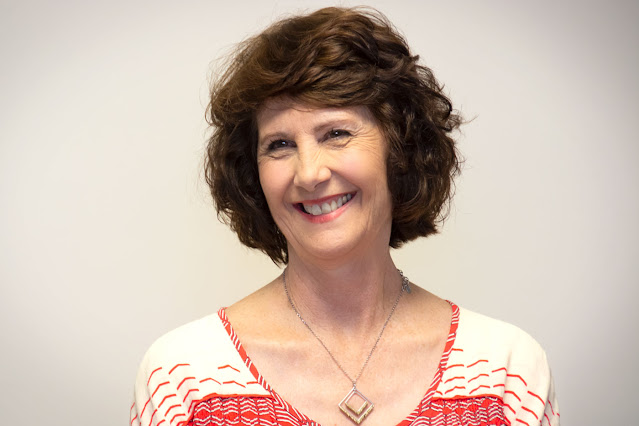To see Susan Piercy — always poised, like the lifelong dancer she was — in front of a classroom of international students at the Language and Culture Institute was to see a master at work.
“Teaching here is very enriching,” she once said, “because you get to see students from diverse cultures collaborate. As they get to know each other, they learn a lot more about the world and maybe correct some misperceptions about other countries and other cultures — including ours.”
Susan, whose career at the LCI stretched from 2000 until her retirement in 2017, died of cancer at her Blacksburg home on July 22 at the age of 69.
At the LCI, she taught English as a second language and, in 2013, was named the assistant director for special programs. Over the years, she led programs such as the Humphrey Fellows and the Mandela Fellows — prestigious State Department programs that brought international development leaders from around the world to Virginia Tech.
“Inspired by the likes of Sen. Eugene McCarthy and the great educator Paulo Freire, Susan was passionate about social awareness and social justice, incorporating associated principles into her teaching. She was a gifted teacher who enjoyed her students tremendously,” Director Don Back said. “Susan was dearly loved by all of us here at the institute and will be greatly missed.”
Longtime colleague Pinar Gurdal said she was always amazed by Susan’s strength and resilience. “No matter what she was going through, she didn't lose her energy, beauty, and connection to life and her profession, her connection to art,” she said.
Liz Bowles, who started working at the LCI just before Susan, said she remembers sitting next to Susan in the faculty workroom, sharing stories about their daughters, and comparing notes about their students and the joys and frustrations they brought with them. “I could always count on her for an encouraging word or a helpful suggestion. She made a difference in my life and in the lives of so many others.”
A California native, Susan received her bachelor’s degree in art history from California State University, Fresno. She did graduate work at the University of Arizona and the University of California, Irvine, taught English in Mexico, and directed an adult literacy program in California before moving to Blacksburg to study at Virginia Tech, where she earned a master’s degree in curriculum and instruction.
Susan once said, “It makes me really proud when former students call me a year or two after they’ve finished here, when they’re back in their home country, to talk about what they learned at the institute and how it’s helped in their lives.”
After hearing that she was battling cancer, dozens of Fellows responded with stories, pictures, and videos reflecting on the impact she’d had on their lives. As her obituary notes, “Her work gave her great joy and touched many lives.”
“She was more than an English teacher. In just a short time, with her warm, sensitive, creative, and fun way, she became a very dear and close friend,” said Katia Luli Nakashigue, a former Humphrey Fellow from Brazil.
Gulnar Magauina, a Humphrey Fellow from Kazakhstan, said, “She was a unique person, courageous, and very fond of life. And we learned a lot from Susan about the U.S., language, culture, tradition, and people! She set an example of overcoming difficulties and loving life.”
Daniel Riche, a Mandela Fellow from Liberia, said Susan “taught us to give back to our community.” In her honor, he said, a women’s leadership program he developed and helps run in his country would be renamed for her. “Her legacy and training will forever live.”
Susan is survived by her husband, Fred Piercy, professor emeritus of human development; her daughter and son-in-law, Adriane and Matt; and her grandson, Oren.
A celebration of her life will be held at a date to be determined at the Unitarian Universalist Congregation in Blacksburg. In lieu of flowers, donations in her honor may be sent to the American Cancer Society.










